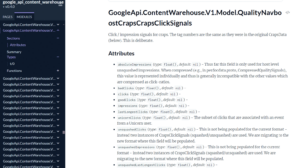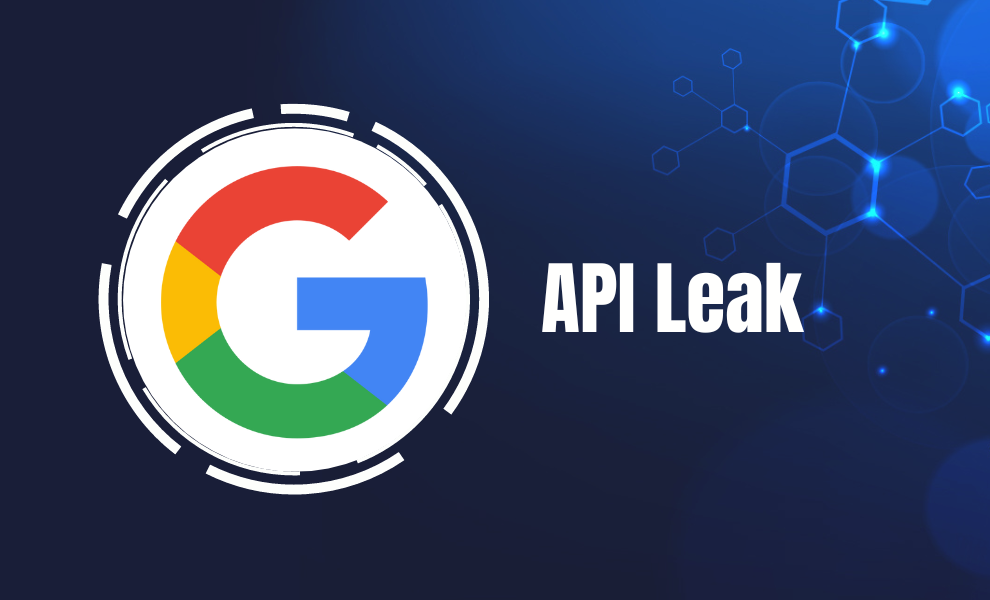Tech giant Google received major criticism at a recent event when an anonymous source leaked its search APIs and ranking attributes. Though the company has denied all the statements regarding its process, its ex-employees have confirmed the information’s legitimacy.
The API documents were exposed on May 5th and have caused havoc among SEO and UX practitioners. The files highlighted that Google has not been following what it publicly asserts for ranking purposes. Let us discuss the key highlights of the Google API Leak and determine what to do next!
Google API Leak Overview:
Rand Fishkin, the co-founder of Moz, and Mike King, the CEO of iPullRank, revealed about the potential Google API leak. The individuals reportedly received the same information from an anonymous source over email.
According to the revelation, the source shared over 2,500 documents, including around 14,014 attributes about Google ranking algorithms. Rand Fishkin said, “In the last quarter century, no leak of this magnitude or detail has ever been reported from Google’s search division.”
Mike King described the situation as “Secrets from the Algorithm: Google Search’s Internal Engineering Documentation Has Leaked.” The source shared that the documents came directly from Google’s internal Content API Warehouse.
The documents included ranking and search procedures which Google denied being true. In simple words, the files have shed light on the operational secrets of the company.

Key Factors in Google API Leak:
Clickstream Data: It is a major metric in web analytic that suggests engagement parameters of the audience. The leaked documents highlight that Google has been utilizing comprehensive clickstream data to rectify search results, which the company has previously denied.
NavBoost System: It is a significant Google algorithm that supports enhancing search outcomes on the Chrome browser. As per the disclosed documents, in order to gather more clickstream data and understand user behavior, Google is highly using the NavBoost System.
User Behavior Analysis: The documents also highlighted that NavBoost also assesses clicks, search trends, and engagement duration while comprehending user behavior for better search results.
Tackling Click Spam: While combatting spam clicks, Google leverages cookie history alongside logged-in data. The activity also helps in differentiating between genuine and spam clicks.
Site quality assessment: The leaked documents also reflect Google’s utilization of Navboost to evaluate website quality, which distinctly impacts search rankings.
Whitelists: As per the files, Google employed whitelists during the time of the Covid-19 pandemic to manage the visibility of websites. Similarly, the process was used during democratic elections to enhance the rankings of websites with election details.
Is Leaked Data of Google API Legitimate?
The process of assessing the leaked documents has been a complex task that requires expertise in the domain. Alongside that, Google has denied practicing any activity demonstrated on the leaked documents.
Therefore, the legitimacy of the information was a major question. Nevertheless, expert-level interpretation and analysis showed that all the details are likely to be true and authentic.
The initial validation came from former employees of Google who stated that the documents are genuine and have been leaked from Google’s internal API warehouse. Additionally, SEO expert Mike King has analyzed the documents and has corroborated on its authenticity.
How to Level Up in SEO After Google API Leak?
The leaked API documents of Google have suggested that SEO experts need to refine their ranking strategies and adopt more operational tactics that genuinely assist in enhancing user experience. Here are a few methods to boost SEO activities considering the disclosed documents:
Associate SEO and UX:
To strengthen SEO, website developers need to understand the operations of NavBoost and its specifications of successful web sessions that highly complement clicks. We can consider successful sessions when the audience clicks on a result after a search and does not return to the search engine or when the audience spend considerable time on a page and do not quickly return on the search engine.
Continuous efforts must also be made to engage the audience on a page. For this purpose, advancing UX components and SEO are necessary. Clear, distinct, and direct details help enhance user experience on a page, which ultimately contributes to longer and more successful sessions.
Testing SEO is a must:
The changing atmosphere of SEO and ranking criteria signifies following a single strategy may not always help in enhancing rankings. Therefore, websites must integrate an experimental approach of SEO and test tactics to enhance content and ranking components such as meta data, keyword placements, and others.
Click metrics are crucial:
Most of the websites are more concerned about impressions and search results. However, Google API documents show that alongside impressions, clicks are also important. Limited clicks can be the cause for lower rankings.
Concluding Remarks:
Google API leak indicates the company is probably depending on comprehensive user data to determine search results and rankings. Nevertheless, Google has never publicly asserted following the attributes disclosed in the documents. The global audience is still awaiting a convenient response from the organization.
As per the validation of SEO experts and ex-Google employees, the leaked documents direct on the complex ranking systems that Google follow. It poses serious SEO implications suggesting the requirement to understand search engine operations extensively. Websites aiming to rank higher require more clicks and successful web sessions. Follow our news section to stay updated with the latest information in the tech realm.
Recommended For You:
Google I/O 2024: All the Announcements You Need to Know About


